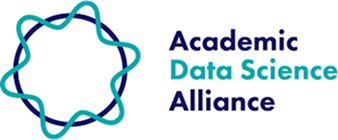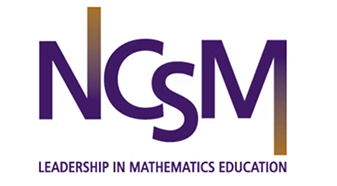Meta-analysis & facts
Recognize the relationship between many trials, uncertainty, and whether a claim is a “fact.”
K–2 Competencies
Classroom resources
Data Science Starter Kit Module 4: Drawing Conclusions - Interpreting Problems and Results
Welcome to one of the most critical skills in data science—learning how to draw valid conclusions from data and understanding what those conclusions can and cannot tell us. This module focuses on the thinking skills that separate good data science from misleading claims.🔗
Interpreting Problems and Results isn’t about complex statistical tests or advanced mathematics. It’s about developing the intellectual honesty and critical thinking skills to say, “Based on this data, here’s what we can reasonably conclude, here’s what we’re not sure about, and here’s what we still need to investigate.”
3–5 Competencies
Acknowledge that errors can arise in analysis due to both human and technological factors, especially when the analysis is duplicated. e.g., different sensors, multple data collections, mutliple people
Classroom resources
Data Science Starter Kit Module 4: Drawing Conclusions - Interpreting Problems and Results
Welcome to one of the most critical skills in data science—learning how to draw valid conclusions from data and understanding what those conclusions can and cannot tell us. This module focuses on the thinking skills that separate good data science from misleading claims.🔗
Interpreting Problems and Results isn’t about complex statistical tests or advanced mathematics. It’s about developing the intellectual honesty and critical thinking skills to say, “Based on this data, here’s what we can reasonably conclude, here’s what we’re not sure about, and here’s what we still need to investigate.”
6–8 Competencies
Acknowledge that examining the same data with identical methods can yield different results due to varying factors, and that a "fact” is not always quickly or easily proven. e.g., data collection issues, analysis approaches, analysis errors, model assuptions
Classroom resources
Data Science Starter Kit Module 4: Drawing Conclusions - Interpreting Problems and Results
Welcome to one of the most critical skills in data science—learning how to draw valid conclusions from data and understanding what those conclusions can and cannot tell us. This module focuses on the thinking skills that separate good data science from misleading claims.🔗
Interpreting Problems and Results isn’t about complex statistical tests or advanced mathematics. It’s about developing the intellectual honesty and critical thinking skills to say, “Based on this data, here’s what we can reasonably conclude, here’s what we’re not sure about, and here’s what we still need to investigate.”
9–10 Competencies
Recognize that one study or data analysis may be insufficient to prove something is “true” for certain.
Document data analysis steps in a shareable and reproducible format that can be repeated.
Classroom resources
Data Science Starter Kit Module 4: Drawing Conclusions - Interpreting Problems and Results
Welcome to one of the most critical skills in data science—learning how to draw valid conclusions from data and understanding what those conclusions can and cannot tell us. This module focuses on the thinking skills that separate good data science from misleading claims.🔗
Interpreting Problems and Results isn’t about complex statistical tests or advanced mathematics. It’s about developing the intellectual honesty and critical thinking skills to say, “Based on this data, here’s what we can reasonably conclude, here’s what we’re not sure about, and here’s what we still need to investigate.”
11–12 Competencies
Recognize the importance of many trials, study validation, and meta-analyses in academic research.
Document data analysis steps in a shareable and reproducible format for collaboration platforms.
Classroom resources
Data Science Starter Kit Module 4: Drawing Conclusions - Interpreting Problems and Results
Welcome to one of the most critical skills in data science—learning how to draw valid conclusions from data and understanding what those conclusions can and cannot tell us. This module focuses on the thinking skills that separate good data science from misleading claims.🔗
Interpreting Problems and Results isn’t about complex statistical tests or advanced mathematics. It’s about developing the intellectual honesty and critical thinking skills to say, “Based on this data, here’s what we can reasonably conclude, here’s what we’re not sure about, and here’s what we still need to investigate.”
Advanced Competencies
Classroom resources
Support other teachers by sharing a resource
Do you have a lesson plan, video, or tip that could help others teaching this topic?
Share feedback on the Learning Progressions
Your feedback helps us improve these progressions for teachers around the world. Thank you!
Share feedback on the Learning Progressions
Your feedback helps us improve these progressions for teachers around the world. Thank you!
Share a classroom resource
Suggesting a resource helps students around the world learn essential data science skills.










.png)














